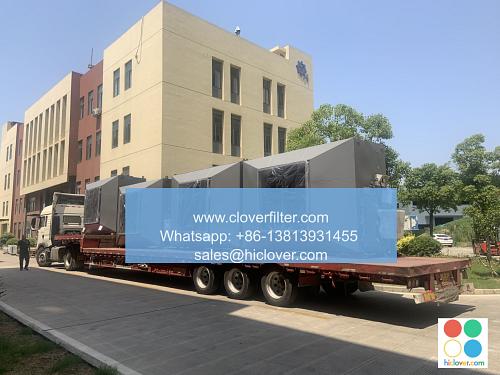The Role Air Filters Play In Reducing Illness and Germs

The Power of Air Filters: Reducing Illness and Germs for a Healthier Life
The Global Impact of Airborne Pathogens
Airborne pathogens and germs can spread rapidly, causing widespread illness and discomfort. From the common cold to more serious respiratory diseases, the impact of poor air quality can be significant. However, there is a powerful solution to mitigate these risks: air filters.
How Air Filters Help Reduce Illness and Germs
Air filters play a crucial role in reducing the spread of airborne pathogens and germs. They work by:
- Capturing airborne particles, such as viruses, bacteria, and pollutants, preventing them from entering the respiratory system
- Reducing the concentration of airborne pollutants, such as particulate matter (PM), nitrogen dioxide, and ozone
- Eliminating allergens, such as dust, dander, and volatile organic compounds (VOCs)
- Residential heating, ventilation, and air conditioning (HVAC) systems
- Whole-house air purifiers
- Portable air purifiers for individual rooms or offices
- Industrial ventilation systems in commercial and institutional settings
- Hospital settings to reduce the spread of airborne pathogens and inpatient infections
- Dental and surgical suites to minimize exposure to airborne contaminants
- Medical laboratories to protect against airborne-mediated contamination
- Commercial aircraft, trains, and buses to reduce the spread of airborne illnesses
- Maritime vessels and cruise ships to maintain a healthy environment for passengers and crew
- Public transportation systems, such as subways and buses, to minimize the risk of illness
- Manufacturing facilities, food processing plants, and agricultural settings to control airborne contaminants
- Laboratories, research centers, and pharmaceutical facilities to safeguard against airborne contamination
- Construction sites and workspaces to reduce airborne dust and pollutants
- Reduce the risk of illness and infection
- Minimize allergy and asthma symptoms
- Improve indoor air quality and reduce odors
- Increase productivity and reduce absenteeism
- Protect vulnerable populations, such as the elderly and young children
Key Application Areas for Air Filters
Air filters are essential in various settings, including:
Homes and Buildings
Healthcare Facilities
Transportation
Industries and Workplaces
The Benefits of Using Air Filters
By installing high-quality air filters, individuals can:
Conclusion
Air filters are a vital tool in the fight against airborne pathogens and germs. By reducing the concentration of airborne pollutants and allergens, air filters can significantly minimize the risk of illness and improve overall health. Whether in homes, hospitals, or transportation systems, the importance of air filters cannot be overstated. Make the right choice and invest in a healthy, improved indoor air quality with the power of air filters.
It looks like you’re ready to get started!
What would you like to talk about or ask? I’m here to help with any questions or topics you have in mind.

